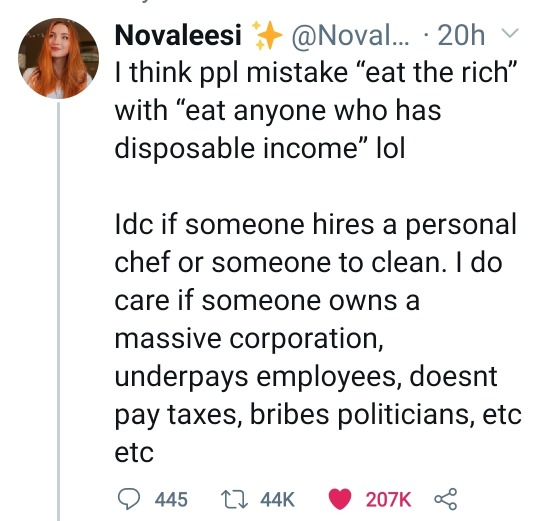Text
Books for Fledgling Witches

I receive an extraordinary amount of letters inquiring about where a young person should start out on the path with no available guide. It is disappointing that we no longer have great schools of magic as we once did at Salamanca and Wittenburg. Yet given the dark times ahead such a public presence as these would be mostly ill advised.
Needless to say as a recluse I have little desire to reply to these inquiries and leave them unanswered, much to the consternation of those looking for answers. In particular it seems that a reading list, something in the way of a syllabus, is being requested.
Having given the matter some thought, and looking at the available choices, I am struck with the lack of real contemporary introductory texts that exist. Much of the lists I have found online offer little more than a best seller list of mid 20th century new age occult garbage. Scott Cunningham nonsense that overlooks or downplays historically important herbs, ham fisted rituals cobbled together mostly from grimoire sources passing off watered down ceremonial magic as sensationalized “witch tradition”. Plus, of course, the endless reams of Wiccan occult fanfic. Publishers were more interested in your cash than giving out any real advise in the 1960-80s.
So I have gathered together a list of six works that I feel a person at the early stages of the craft, seeking guidance, could use as a set of foundation texts. These books are not listed here for the more practiced and able, who memorize long tracks of dusty manuscripts with ease and whose Latin and Greek are on point. This list is for those who find themselves in isolated places looking to find a path to discovery in an all too mundane world.
In any book the true value is in its bibliography. Each book should give you a list of the books it references, thereby leading you down a path to the root of the ideas presented. Every book like a stepping stone along the path. Dig well past the first few pages of these books, and remember that no book is a substitute for a regular relationship with a bit of isolated nature - a meadow, forest or shore in which to learn to understand the landscape and listen to its wisdom. Even better if you haul the books out into the wilderness to read.
From this list one can move up to more advanced and varied reading, particularly in the Folkwitch Library.
Books for Fledgling Witches:
Nigel Pennick - “The Secrets of East Anglian Magic” 1995 “Natural Magic” (aka “Thorson’s Ways of Natural Magic”) 2001
Nigel Pennick is, regardless of what many will say, singularly responsible for the “traditional witchcraft” revival. Though widely overlooked his work, particularly “The Secrets of East Anglian Magic”, is a clear inspiration on Andrew Chumbley and Michael Howard. His books are less mysterious and more widely available than either Chumbley or Howard but somehow Pennick isn’t given the due that Howard and Chumbley receive.
It is in the writings of Pennick that we see the first mentions in print of the “Nameless Arte” and he outlines several methods for obtaining the toadbone that are directly quoted in other’s works. “The Secrets of East Anglian Magic” gives a great historic overview of traditional magic from an English perspective. Pennick’s work “Natural Magic” is a general beginner text that offers a set of rituals, spells and tools that are useful and practical.
Paul Huson - “Mastering Witchcraft” 1970 “Mastering Herbalism” 1974
Paul Huson and his work “Mastering Witchcraft” have received acclaim for decades, though with the usual detractors as well. “Mastering Witchcraft” offers a straightforward and simple explanation of the practice of practical witchcraft. Strangely for its time it is free from most of the Garderian/Wiccan nonsense and historic revisionism. Instead it gets right to the work of making things happen without more than a few pages of Dianic world creation myth.
Huson’s “Mastering Herbalism” is as well a rather straightforward text gleaning information from older herbals but providing straightforward practical advice. Recipes, unguents, and burning rituals are all outlined as is a description of the traditional flying ointments. An amazingly useful book to have to hand when dealing with practically any plant material in the practice of the craft.
Katharine Briggs - “Pale Hecate’s Team” 1964
Briggs is a classic folklorist and once President of the Folklore Society of London. Her works are foundational texts in understanding fairy mythology in the British Isles and the beliefs of common folk surrounding spirit manifestations. All of her work is worth reading and I can not recommend her enough.
In particular “Pale Hecate’s Team” is an exceptional text that gives an historic overview of witchcraft belief in the middle ages. Discussing many of the practitioners who were tried in England and Scotland and whose confessions make up the bulk of the historic record of craft practice. It will do the reader well to understand that unlike in America many if not all of the accused in the British Isles were in fact either true practitioners of the craft or charlatans who pretended to be such in order to make money off of the unsuspecting. Briggs gives an outline of then contemporary belief that is particularly useful to the young witch in coming to some understanding of the relationship between the spirits and the land as it is understood in culture.
Giles Watson - “A Witch’s Natural History”
Watson’s “A Witch’s Natural History” was originally a series of articles published in Michael Howard’s The Cauldron magazine. It is a poetic examination of the role nature plays in the craft. A kind of devotional dedicated to the wild and its teeming life. Watson gives a good outline of the plants and animals that surround the history of witchcraft. How the cultural perceptions of certain plants and animals inform their use and significance.
+++
In addition to these works I also highly recommend a subscription to the Folklore Journal. A subscription comes with full online access to more than a century of writings in their quarterly publication, starting in 1878.
Once the witch has moved on from these texts a deeper read can be found in the Folkwitch Library. In particular “Darker Superstitions of Scotland” by John Graham Dalyell is a dense and rewarding text that yields a treasure of practical advise, though having been written in 1834 it isn’t the most modern of writing styles.
If one is inclined to mix a bit of ceremonial magic into their witchcraft I recommend Francis Barrett’s “The Magus” as an exceptional system of ritual magic that was far ahead of its time in interpreting the spirit catalogues and their functions from the grimoires of old. The recent revival in grimoire magic has gone far beyond Barrett’s research, yet his remains a concise and straightforward system of practice.
796 notes
·
View notes
Text
Beginner steps in witchcraft (my recs)
Get very intimate with your landscape
When you get to know your land, what grows there, what lives there, how it’s formed, and how it changes, you can start to understand it as a singular force and the entities that reside there individually. This is important for being able to harness its power, getting aid from its spirits, and what to use in terms of materia magica (plants and animal parts for spells, brews, and rituals, as well as ritual tools).
Working threads
Fibres, spinning them into threads, and weaving them into things is intricately woven into the history of magic and witchcraft. Learning how to perform these ancient crafts will in turn give you a better understanding of your own craft. Threads connect everything and it’s important to understand how they are formed, from what they are forged, and when to cut them.
Develop your second sight
Most likely, at the very minimum, half of your witchcraft is going to involve spirits. It’s unavoidable, you will have one foot in this world and one foot in the other, in order to best work with these entities you are going to want to remove the shroud from your eyes. If you are afraid of such a thing, know this, they are there whether you can see them or not.
20 notes
·
View notes
Text
There are actually a lot of rules to magic.
Like yes, there's no rules, but if your takeaway from that is that there's literally no rules, then I think you missed the larger conversation about the specific ways in which there are no rules.
What "there's no rules" means is that there is not one universal set of rules that applies to every practitioner.
It means that nobody gets to act as an authority on what the rules are for everyone else.
It means that if you show up on somebody else's post saying "the first rule of witchcraft is that you must only use magic for good" you will probably (and deservedly) be told to fuck off.
What "there's no rules" does NOT mean is that there are literally no rules. There are SO many rules. People just work within their own set of rules.
Some rules come with the territory of working within a specific tradition.
Some rules are set by entities that practitioners work with, and might be quite specific to each individual.
Some rules are like laws of physics. They define the mechanisms by which magic works within a paradigm, and what the limits are on what it can do. A magical practice consisting of "I can do literally anything," is typically a practice that hasn't had a lot of genuine thought put into it. I have yet to meet anybody who can literally turn invisible or fly.
Some rules are more like a personal code of ethics.
So, when you burst into someone else's post to announce that there are no rules, you might not be told to fuck off quite as quickly as if you turned up to impose your personal rules on other people, but you are essentially signaling that you do not understand the concept of rules within a magical practice.
Disclaimer: some people are going to be obnoxious and make their own posts about how everyone else should be following their rules, and while it might be tempting to correct them, in my experience these people tend to get 0 notes, and you're more likely to give them the exposure they desire by starting a flame war. When they find that followers don't come flocking to them, they eventually get bored and give up.
579 notes
·
View notes
Text
The Witching Gods
The Gods of the Witches are both Infernal and Divine. Both Light and Dark. They are the Old Ones. They Who hallow the Earth.
They can be terrifying to encounter due to Their sheer power. A Witch might be shaken by the Presence of these celestial beings, but keep in mind, these are the Ones that live in the soil. They are the unseen souls and vitality of all existence.
They deserve the highest respects, and shouldn’t be taken lightly. These are both the Gods and Spirits of the Witch.
The Devil
He is the Witchfather and The Man In Black. He is the spark that ignites the Witchflame. In understanding His power, a practitioner can come to realize their potential and their place on the Crooked Path. Through a pact with Him, dominion is delivered.
The Faery Queen
She is the Queen of Elphame, and Goddess of Witches. Her power radiates through the earth and soil and delivers itself to the ones that practice the magickal arts. She rules over the Fae and the Dead alongside the Devil. Her court presides over All That Is, and What Shall Be.
The Spirits of Place
These are Gods of the locale wherein the Witch works their Craft. They hold the keys that the Witch will need to unlock the secrets of the Land. The Genius Loci may differ from one region to another, but regardless, They are the Ones that lift the Veil, that the Witch May see.
The Ancestors
These are the Ones who have come before us. They bring guidance and understanding to the Witch, that they may excel. They are the Ones in Shadow, often feared as evil dead, but They remain as the Ghostly Hosts of the life before us, and soon we shall join them.
The Mighty Dead
These are the souls of the Witches before. They come to initiate and bring forth power onto Witches. They have lived the life of magick, laying now in the Currents of Death, in which one day, every Witch shall be a part.
603 notes
·
View notes
Text
elliot: luke and i are not friends only he’s one of 2 people in the whole world i love only he’s so strong and kind and pretty and everyone loves him and i’m used to being mean to him so i’m just giving him a taste of reality when i continue to be mean to him and never tell him how i feel but it’s clearly obvious. clearly. he knows i love him so much. that said he hates me and only puts up with me for serene. i am inherently unloveable and it is my burden to bear.
luke: elliot hates me so bad and has since he met me and nothing i ever do will ever be good enough ever ever ever. i constantly try to be his friend and it means nothing to him. also he’s so funny and smart and can date anyone he wants and understands how to talk to people and i’m not like him and if i ever share my insecurities with him he will rip me to shreds for it. that said i am going to continue to love him and be his friend always because i love him and want to be his friend. this is healthy.
serene: what a lovely day in the borderlands with my two dearest friends who are also friends. i love that we are all friends and all know it and have definitely not been miscommunicating for five whole years. i love that my friends have enough manly intuition to know that they are friends.
637 notes
·
View notes
Note
Hey, a while ago I called you fat. I just wanted to apologize. I’ve recently gained a lot of weight and now I’m fat, too. Definitely wouldn’t appreciate it if someone called me fat.
Fat bitch
46K notes
·
View notes
Photo




Wow. Talk about attention to detail.
Video here: https://twitter.com/javi_draws/status/965260617790738432?s=21
447K notes
·
View notes
Photo

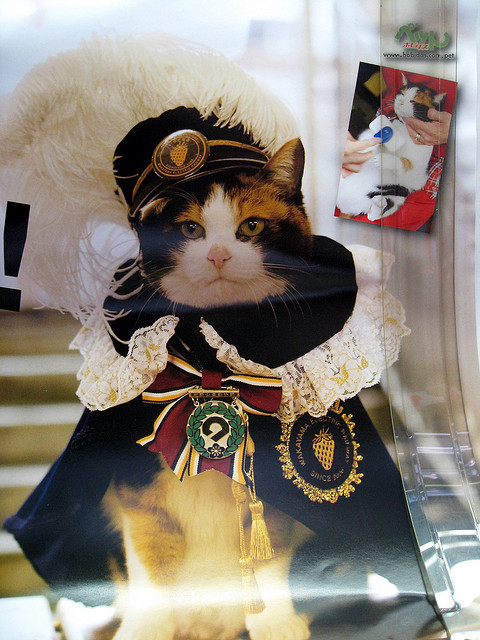
Source
Video of Tama
Follow Ultrafacts for more facts
1M notes
·
View notes
Photo



transparent brownisaur, strawmander, and squirpie for your blog ♥
21K notes
·
View notes
Text
Invocation of Pan for Aid in Witchcraft
Great Pan, King of the Wild Woods, hear my prayers!
Goat-horned and goat-footed, I ask you to attend to my rites upon this night,
Master of wild groves, and all the plants that grow there, bless my herbs and roots with your power,
Lord of the Spirits of the Land, may your entourage aid me in my work,
Pan, Horned Hunter, God of Wild Beasts, help me to know the spirits and magic of the creatures around me, that their bones may work my witchcraft,
Ecstatic One, God of Panic, help me to achieve a mindset for magic to manifest my intentions,
Pan, Great God of the Pipes, I beg of you to come upon me now and grant your assistance to my spells and rites!

143 notes
·
View notes
Text
Book Recommendations?
Does anyone have any book recommendations of working with the land spirits and the witch ancestors/mighty dead?
11 notes
·
View notes
Text
Knowing that trans women of color started the movement in the united states and were literally immediately erased and excluded from what they started is the most deeply jading knowledge.
It is the original sin of the so-called queer community and it damns it from the cradle.
535K notes
·
View notes
Note
Hey. I'm someone who's trying again to get into magic, but its hard given how skeptical ive trained my mind to be over the years. I'm considering taking the approach that if magic is real and I try it, I'll eventually know and won't need to convince myself.
Is this approach fruitless, and things won't work if I don't believe? Because if so, I can try to recondition how I think, which I might want to do anyway. What do you think?
Also, sorry if you can somehow tell who I am or whatever. I don't exactly know what to believe about what you're capable of, lmao. Thank you!
it's sort of a constant battle, to tell you the truth. the vast majority of practitioners i know are extremely skeptical as well, and in the beginning of my practice i was much like you are now.
i didnt really think magic could do anything, let alone allow one to summon demons or perform miracles, but i was desperate so i had to try. now here i am, and it has become a central part of my daily life.
i dont know if you really need to believe it, just if you can get out of your own way. my faith is not unshakeable, it is not unwavering; it's like a wave, it comes and goes as it sees fit, sometimes it fills me up, washes me away, other times it's dry and deserted. but this seldom gets in the way of my actual practice, and even when i think to myself 'theres no way this will work, i'm a fraud' i still do it, and it surprises me with.. working. like it always does.
i dont think it's fruitless. you need to start small, you need to prove it to yourself in little ways before you've flexed your muscles enough to prove it to yourself in big ways. while i dont think trying to prove it is an unworthy endeavor i think too many people get into magic that way and end up abandoning it, because they've got no real force behind it. it's hard to trust it, harder to get out of the way.
i think if you're meant to find it, you'll find it.
170 notes
·
View notes
Photo
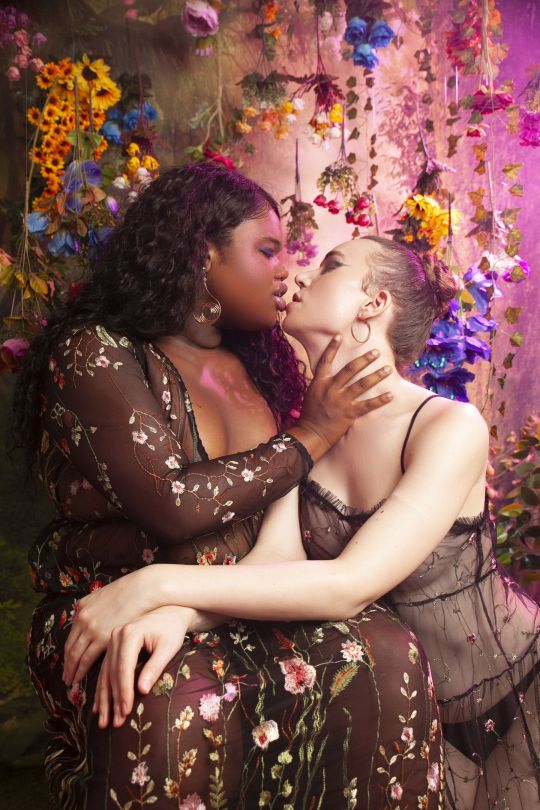



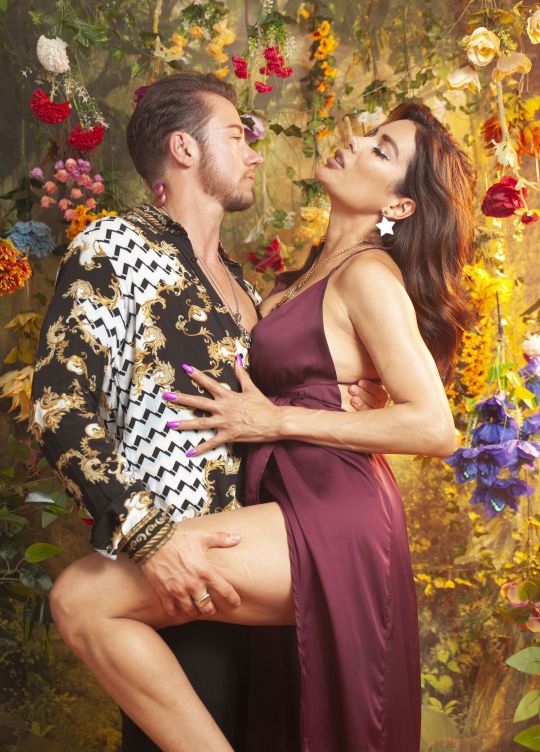

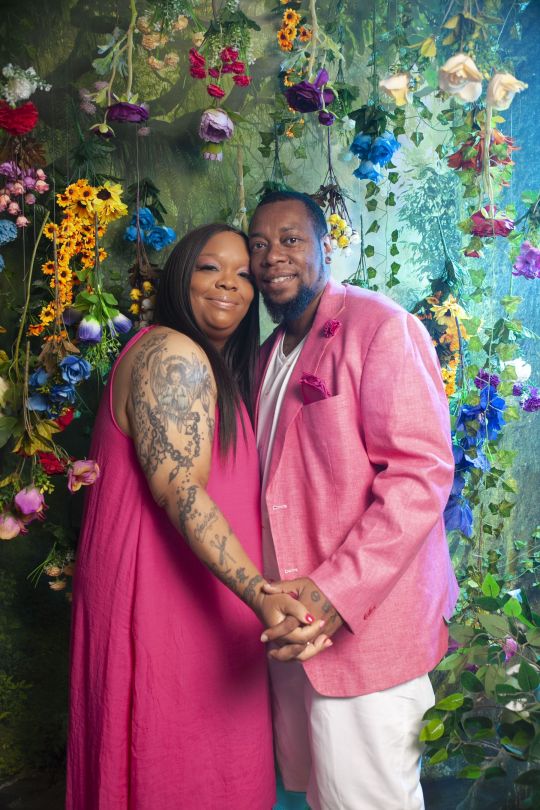
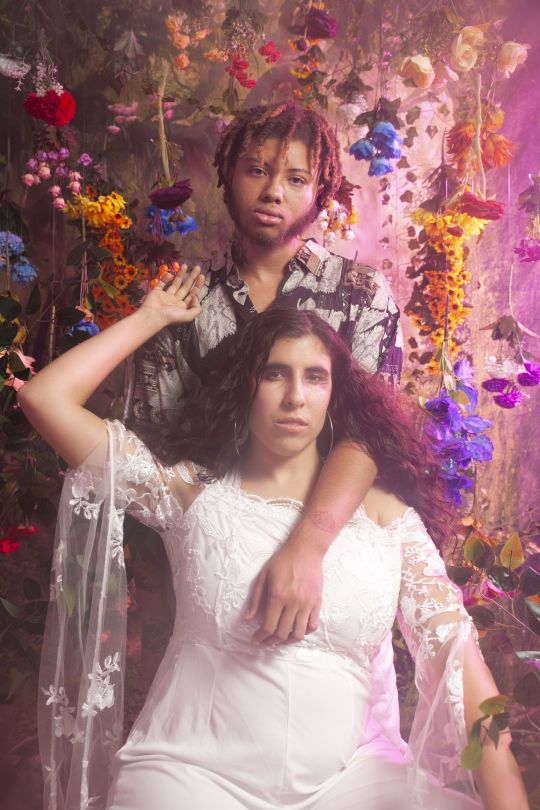

obsessed with this photo series about trans love by photographer landyn pan (source)
136K notes
·
View notes
Text
Homeric Oracle Introduction + My personal guide to it

Homeric oracle is a dice based divination method using the Homeric texts - the Iliad and odyssey - to achieve an outcome. You roll a d6 (dice with 1 - 6) three times to get three numbers, which correlate to a line in the Iliad or Odyssey. The lines in question were chosen long ago, and thankfully there’s online cheat sheets. It’s incredibly useful to have the Iliad and Odyssey on hand when using this oracle.
Using my dnd dice is my favourite part of this.
In my experience, this oracle has been wonderful for communication with heroes. I recommend this for hero worship.
I keep this Introduction short, because there’s just really not that much on the oracle. The studies I’ve read contradict eachother, so Oof.
Divination process
Required materials:
D6 dice (1 - 6)
The numbered list
Hellenion’s Homeric oracle sheet:
http://www.hellenion.org/homericoracle/
Online Homeric oracle:
http://www.homeromanteion.com
My method of Using the Oracle
I start by grabbing the dice, and just feeling if it’s the right time for Divination.
Then, I recite a prayer. This could be a general prayer, or a prayer to a specific god. I personally pray to Zeus or Dionysus (I’m a Dionysus Devotee) instead of Apollon or Hermes.
Some of the prayers I’ve used:
“I pray that the dice may bring me clarity in my goals”
“May Zeus guide the dice to bring me clarity”
“Great King Zeus, father of the heavens, please help me achieve my goals with my Divination.”
“Lovely Dionysus, please help me achieve clarity with my Divination.”
“Dear Dionysus, I ask humbly for help with my Divination.”
Then I roll the dice three times, making sure to remember the numbers
Next, I look up the passage and then interpret
When I’m done, I put my dice back on the altar and leave
My interpretation tips:
Understand the texts you’re getting Divination from. Obviously, it’d be very helpful to have read the Iliad and Odyssey.
Intuition. I cannot stress enough. The lines can be cryptic, and your intuition will save you.
If it’s confusing, understand the context behind the exact line. Who is saying? What is it referring to?
In my experience, this Divination method requires more “silence” if that makes sense.
I hope this helps others to become familiar with a new Divination method. Homeric oracle is very interesting, and the more I’ve used it, the deeper and better my own intuition has gotten. It’s honestly beautiful.
At first I rather struggled with it, but then it came naturally, especially with the mini prayers. Plus, it’s helped me to communicate further with Akhilleus and Patroklos.
Which is always a bonus.
Aesthetic image from: https://dice-aesthetic.tumblr.com
- Adrian Dionysoniketes, Adri_Le_Chat
176 notes
·
View notes
